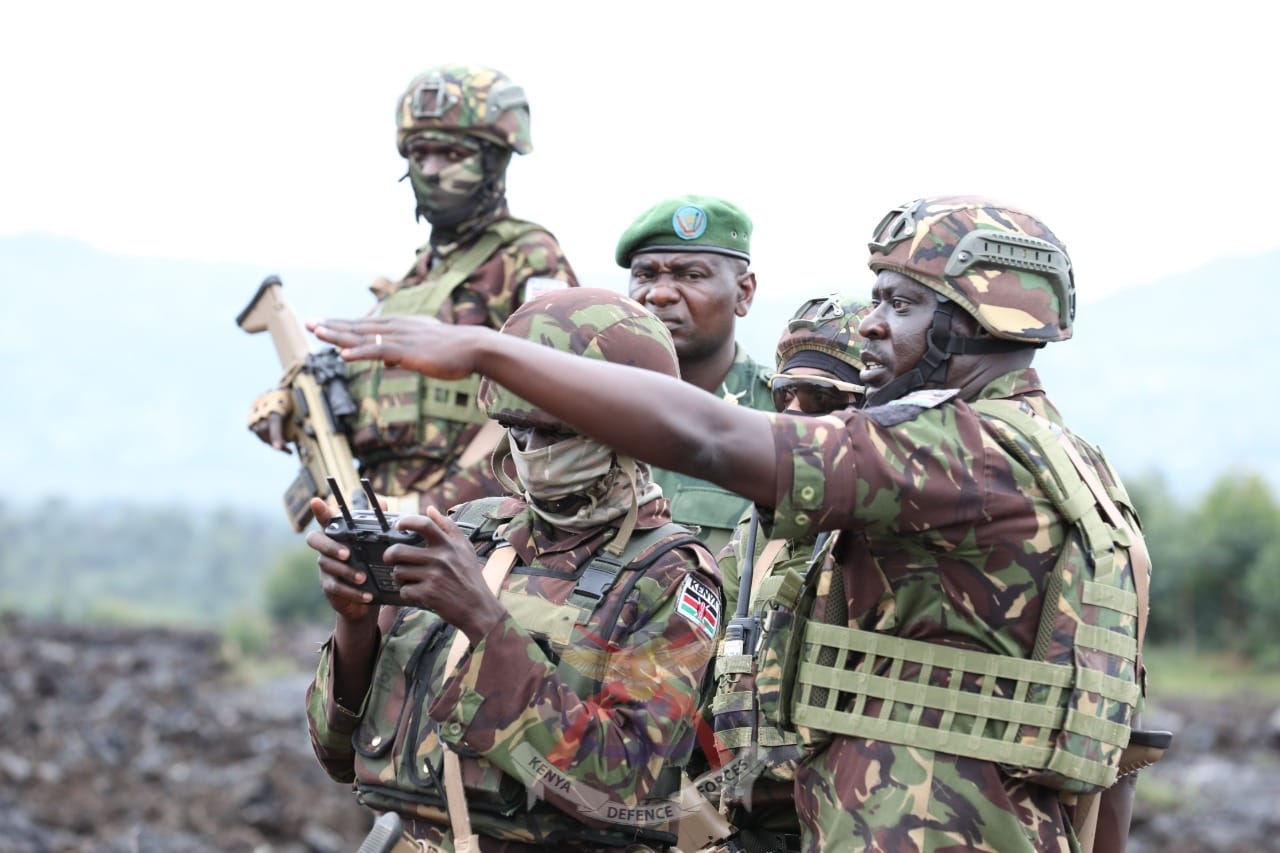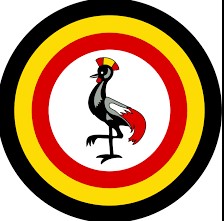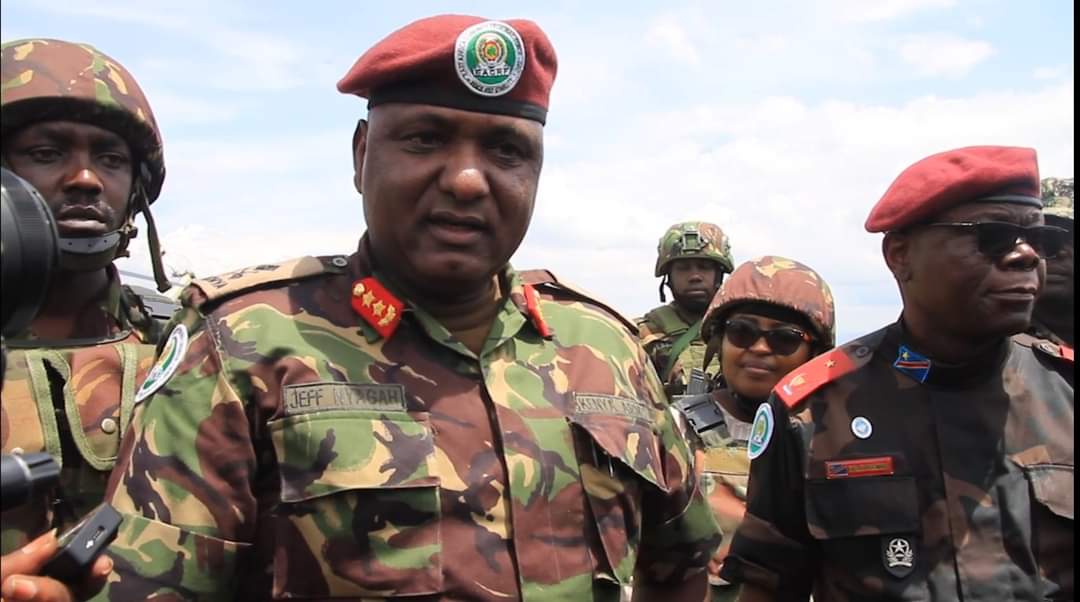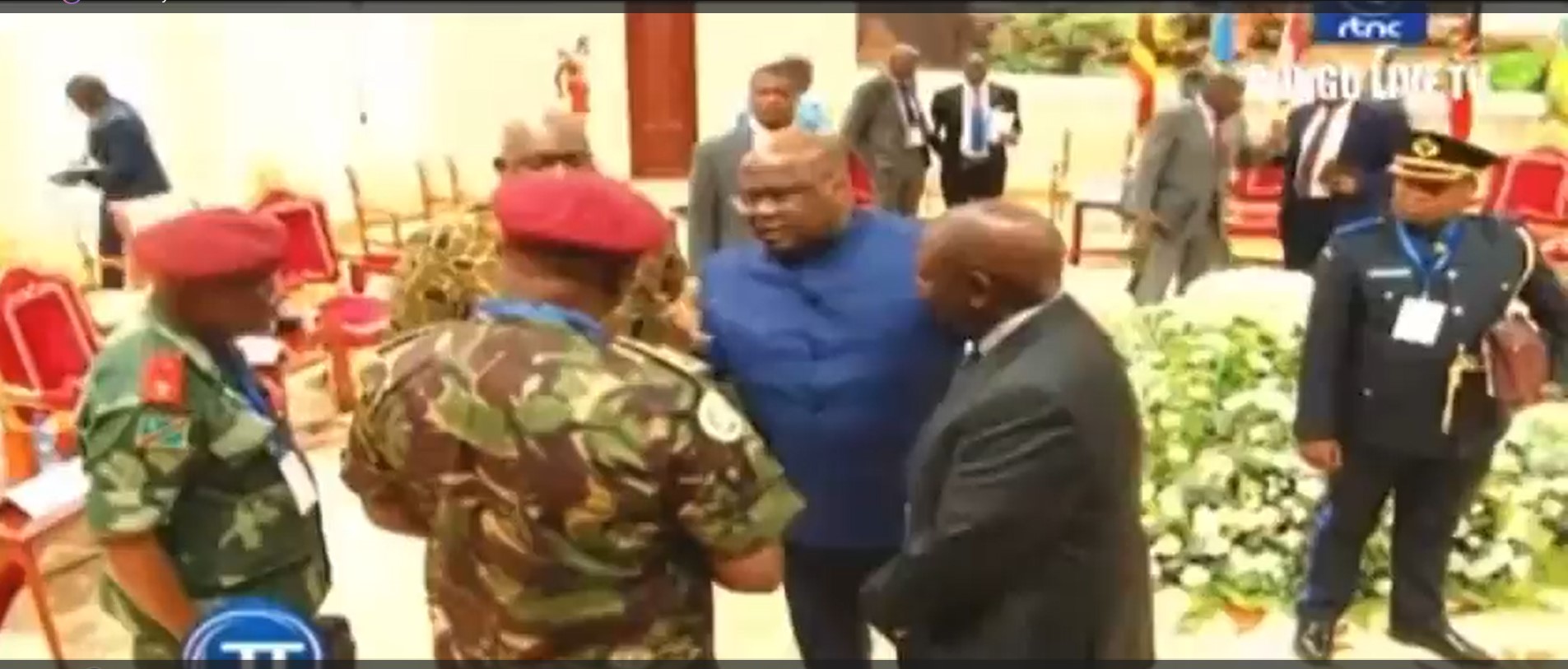Regional
DRC: EAC Regional Force’s mandate extended, Tshisekedi unsettled

East
African Community leaders on September 5, extended the mandate of their regional
force in the Democratic Republic of Congo for three more months to help
consolidate the gains the force has made.
The
move was undoubtedly bad news to President Félix Tshisekedi who wants the force
to leave.
The
regional leaders acknowledged the good work by EAC regional force that was
mandated to create a buffer zone to prevent confrontations between Congolese
defense forces (FARDC) and M23 rebels as well as encourage political dialogue.
That
is why the regional force’s time, which was due to expire on September 8, after
a six-months extension in March, was extended to December 8.
The
EAC regional force has done a praiseworthy job.
Since
it was deployed in November 2022, it secured all territories evacuated by the
M23, as stipulated in the Luanda roadmap as a condition for dialogue with
Congolese government.
The
regional force occupies the evacuated areas of Sake, Kibumba, Rumangabo,
Mushaki, Kilolirwe, Kitchanga, Kiwanja and Bunagana, among many others.
The
presence of EACRF in eastern DRC allowed a ceasefire to last for more than six
months. Since February, there have been no heavy fighting between the Congolese
army and M23.
Beyond
peacekeeping, the EAC troops are engaged in humanitarian activities including
the provision of emergency medical care to civilians, providing food, and
assisting residents in their daily life in North Kivu Province.
Despite
all efforts they have put in to keep east DRC safe, EACRF has been subjected to
a number of attacks from the Tshisekedi regime, including hundreds of violent
demonstrators being unleashed against them.
This
intimidation led to the resignation of the first Force Commander, Maj Gen Jeff
Nyagah, who cited “aggravated threat to his safety and a systematic plan to
frustrate efforts of the EACRF” as his reason.
Related: DRC:
Tshisekedi wants EAC regional force out, what’s next?
In his
resignation letter to the EAC Secretary General, Gen Nyagah wrote: “As you
are aware, there was an attempt to intimidate my security at my former
residence by deploying foreign military contractors (mercenaries) who placed
monitoring devices, flew drones and conducted physical surveillance of my
residence in early January 2023 forcing me to relocate.”
On
many occasions, Tshisekedi uses militia and protestors to attack the UN mission
and EAC regional force. Since at least July 2022, the Congolese President
plotted demonstrations against peacekeepers in eastern DRC, accusing them of
failing to restore peace.
He
wanted the peacekeepers to attack the M23 rebels, which is not their mandate. When
EAC regional force declined to satisfy his wishes, Tshisekedi accused them of
‘cohabitating’ with M23.
His
absence at the Nairobi meeting on September 5 speaks volumes.
Insecurity
still exists in eastern DRC. Civilians are still killed day by day while
millions others are displaced. Armed groups increased, totaling to more than
260 today.
While
EAC regional leaders believe that eliminating these groups will lead to
security in the entire region, which will enhance regional integration and
development, Tshisekedi’s wish is that peacekeepers exit DRC so that the
December presidential election can be delayed, with insecurity as a pretext.
Related: DRC
security not Tshisekedi's alone; EAC has a big stake
Tshisekedi
is sacrificing his own people in eastern DRC for personal gain.






